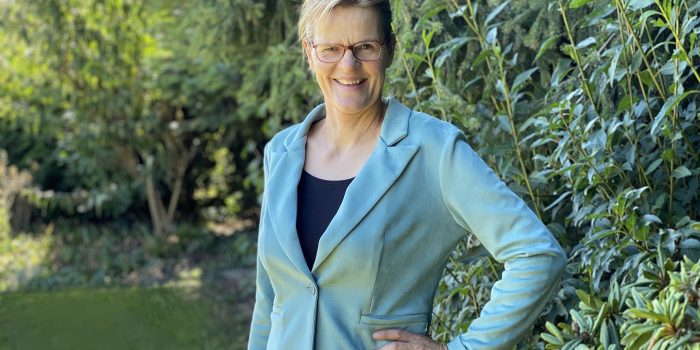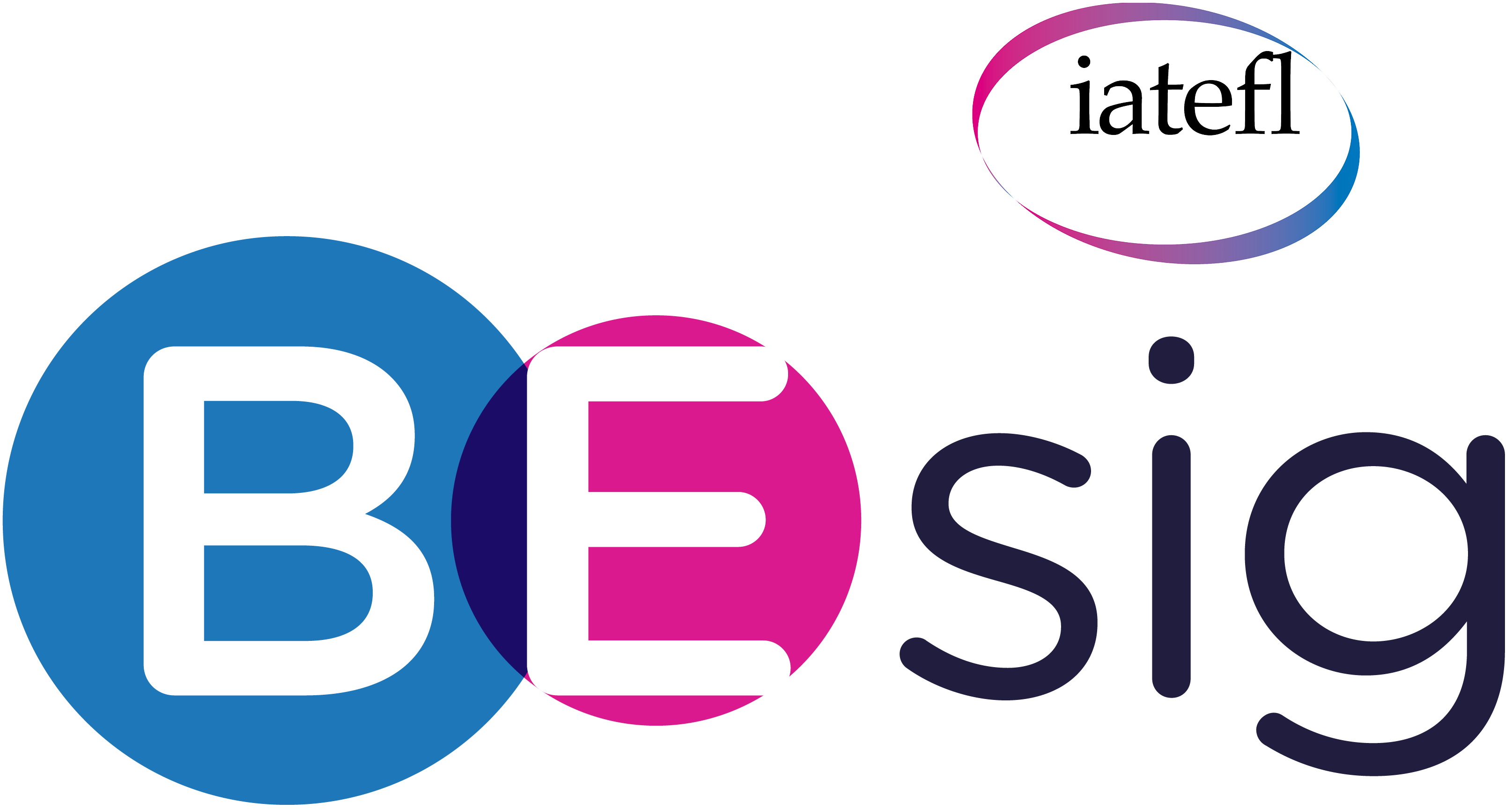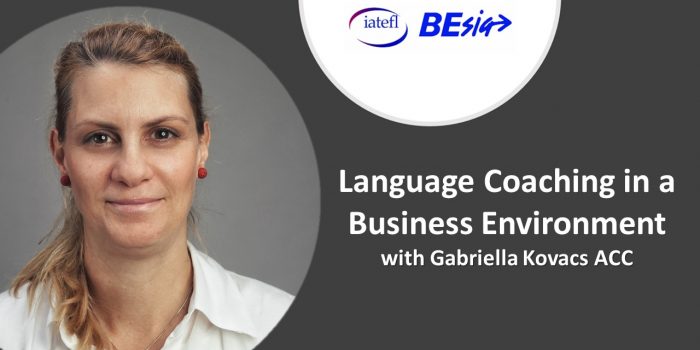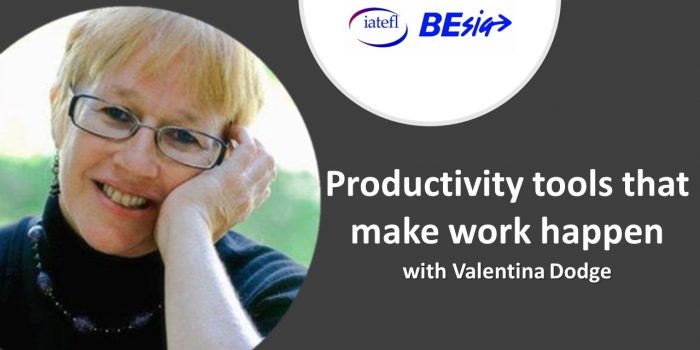
Katrin Lichterfeld
I hope you are having a great week! Now that the weekend is here, put your feet up, grab a cup of coffee and relax with the latest Meet a Member interview. This week, we’re meeting Katrin who many of you will remember from the webinars and workshops she’s done for BESIG. Read on to find out more about Katrin’s thoughts on BELF communication and how she became part of the “BESIG family”.
Bio: After working in the export department of a beverage group, Katrin Lichterfeld did an MA (SLA) and a CertIBET. She has been working as an in-company trainer (communicative and intercultural competence) in Germany since 2000. She is a participant of the EU-funded ENRICH project “ELF practices for inclusive multilingual classrooms”.
How have you benefited from being a member of BESIG?
My professional development would not have been possible without being a member of BESIG and my wonderful international network of like-minded people. Working as a freelance in-company trainer can sometimes be pretty lonely. I found out about BESIG as a subscriber to Business Spotlight, joined in 2008 and attended my first conference in Bielefeld in 2010. It was the beginning of a completely unexpected professional journey, full of motivating and warm support from the ‘BESIG family’ and many opportunities to grow professionally. When thinking about my BESIG highlights, I would mention my first-ever lost suitcase on a rather turbulent and much delayed journey to BESIG Dubrovnik in 2011 and doing pair work with Anne Kankaanranta – one of the most important BELF researchers – in a BESIG workshop in Berlin last year.
What is the BELF (Business English as a Lingua Franca) approach to teaching business English?
You cannot teach BELF, because it is not a variety. Adopting a (B)ELF-oriented approach has changed my training style completely. BELF consists of three principles: The multilingual (English and learner’s L1(s)), the negotiation (effective communication combined with accommodation and intelligibility) and the intercultural principle (intercultural awareness and competence). For all the stakeholders involved, it is important to raise ELF (English as a Lingua Franca) awareness: how is English used in the global settings, what aspects of language or what communication strategies are important to communicate successfully, what effects does my use of language have (metalinguistic awareness), what are the reasons for my use of language, who is responsible for misunderstandings, what about my own assumptions, (self-)perceptions, attitudes concerning identity, accent, stereotypes, linguistic and cultural diversity (metacognitive awareness)?
How can a novice business English teacher include BELF concepts in their classes?
Adopting a BELF-oriented approach is like riding a bicycle. You have to keep moving to keep your balance. Focus on the process. Start with small steps. Have a look at your assumptions and attitudes. Set SMART goals depending on your teaching context and your learners’ needs. Establish new habits and leave your comfort zone together with your learners. Accept making mistakes to make progress. Read the latest research.
Most business clients achieve goals in a linear way: more vocabulary, grammar, and perfect pronunciation. They consider reflection a waste of time. Growing in a holistic and sustainable way needs regular periods of looking back in a more cyclic way. The CEFR Companion Volume stresses the importance of communicative language strategies (‘plan, execute, monitor and repair’) in the sense of creating bridges or dealing with conflict.
Why is it important for teachers to access and use the latest research in business English teaching?
When looking at my own professional development, I have continuously tried to find a balance between theory and practice. There have been longer periods with different levels of intensity. The several years of work experience in the export department of a big beverage group has always helped me to put myself into my learners’ shoes.
In 2017, the IATEFL BESIG conference took place in cooperation with the Research SIG and it was a fabulous opportunity to broaden my research horizons. After many years as a business English practitioner, I reconnected with my long forgotten academic interests. Since 2017, I have benefited a lot from catching up with research, looking at my training practice from different perspectives and adapting whatever was necessary and feasible based on my learners’ needs in their specific learning and working contexts.
There has been a lot of compelling research into how people use English as a business lingua franca. How could testing organizations and publishers incorporate this research?
BELF stands for a huge paradigm shift for all the stakeholders involved. Many of our attitudes and beliefs concerning ownership or the ‘native speaker’ as ideal role model are deeply rooted. Several testing organizations and publishers have already started incorporating both the CEFR Companion Volume and results from (B)ELF research. Intelligibility has become the primary construct of phonological control and our colleagues Rudi Camerer and Judith Mader (2012) have been advocating appropriateness (of register and language for context), comprehensibility (in writing and speaking), politeness (in the context of relationship-building) as key factors to ‘measure’ the success of business communication.
Nonetheless, we are only at the beginning and bridging the gap between theory and practice takes a lot of time. Moreover, the huge interest in (B)ELF research will also have to be implemented in teacher training and language policies.
What about a ‘BELF-mindset’ and learner autonomy? Which activities could you recommend?
A thorough needs analysis helps to prioritize and adapt learning and thinking activities. Reflection should be a regular component of our training. We will have to raise metalinguistic and metacognitive awareness by asking questions (see no.2). Apart from helping our learners to be successful international communicators and getting their job done, we should talk about their emotions when using English and what impact their use of English may have on their relationship with their interlocutors.
Our learners also have to feel responsible for their learning journey to become proud of their English voice. They will have to develop the flexible, aware and creative BELF-mindset of a team player to adapt whenever necessary, but without losing themselves. They will learn how to fully exploit their linguistic, plurilingual and pluricultural repertoire to build long-term and trustful relationships celebrating diversity and inclusion.
What sort of plenaries would you be eager to see?
I would love to hear more from people working in HR. I think it is really important to change perspective and to raise our awareness concerning the big picture of in-company training.
Questions and editing by Mandy Welfare
3rd of October 2020
MEET A MEMBER is available to IATEFL BESIG members and non-members alike but only features our current members. Another reason to join us and “BE with BESIG.”



